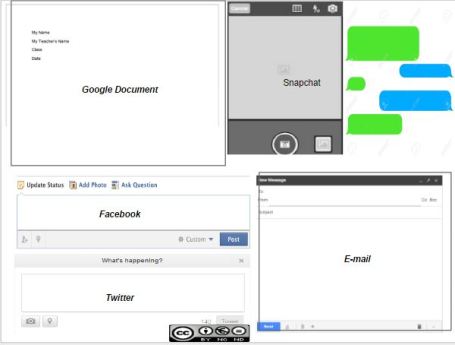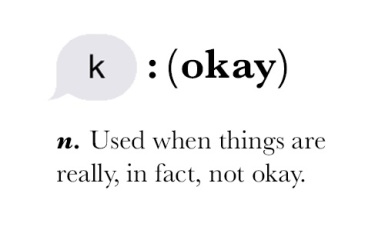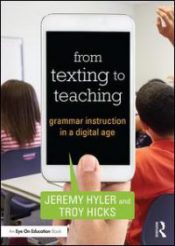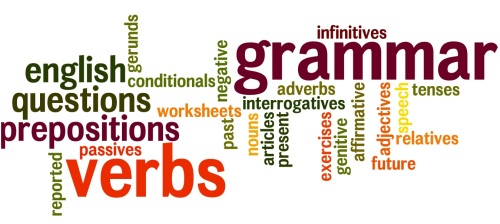
Less then a year ago my co-author Troy Hicks and I released our second book From Texting to Teaching: Grammar Instruction in a Digital Age. Since that time, I have been continuing to engage my students in new ways to think about grammar in the spaces where they write. This year has been very eye-opening to me and my students are showing me that their writing worlds are evolving every day.
As we were discussing adverbs two weeks ago, my students were completing lessons on Grammarflip while preparing to complete their grammar templates with their groups. During the discussion, we started talking about texting and I mentioned how last year’s students would get frustrated when they would text their peers and be frustrated when the letter “k” was sent back representing the work “okay”. That opened the floodgates for our conversation. As their teacher, I not only learned from my students, they allowed me into their world where they communicate regularly.
One of the most interesting things that my students brought to my attention was how texting was done more through the Snapchat app then just simply texting someone using the texting feature on their phone. When I asked why they did this, the replies suggested they enjoyed using pictures and the emoji features that Snapchat allowed. It didn’t mean they didn’t use the standard texting on their phone, but it did mean that it is used less than when I have talked to previous year’s students.
More surprising to me was most of my students know proper grammar. Yes, you read that right. Most of my students do know proper grammar! My students proceeded to tell me that they use proper grammar in their text messaging when they need to use it. Okay, so when is that? Proper grammar is used by my students it seems when they are either upset with the person they are texting or they are trying to make a point. Using proper grammar lets the other person know they are serious and they are not pleased. I sat there for a minute trying to wrap my head around this concept my students were instituting in their daily communication to their peers.
As I thought more about this, it still goes back to this idea of formal -vs- informal writing. It is evident to me that my students are using informal writing when communicating with their peers. However, when it is time to take things seriously and the conversation becomes more important, they formal guidelines are kicking in for my students. They are continuing to learn and evolve the skills they need to help them in their writing spaces.





 Today I am both humbled and excited. Tomorrow my second co-authored book,
Today I am both humbled and excited. Tomorrow my second co-authored book, 


